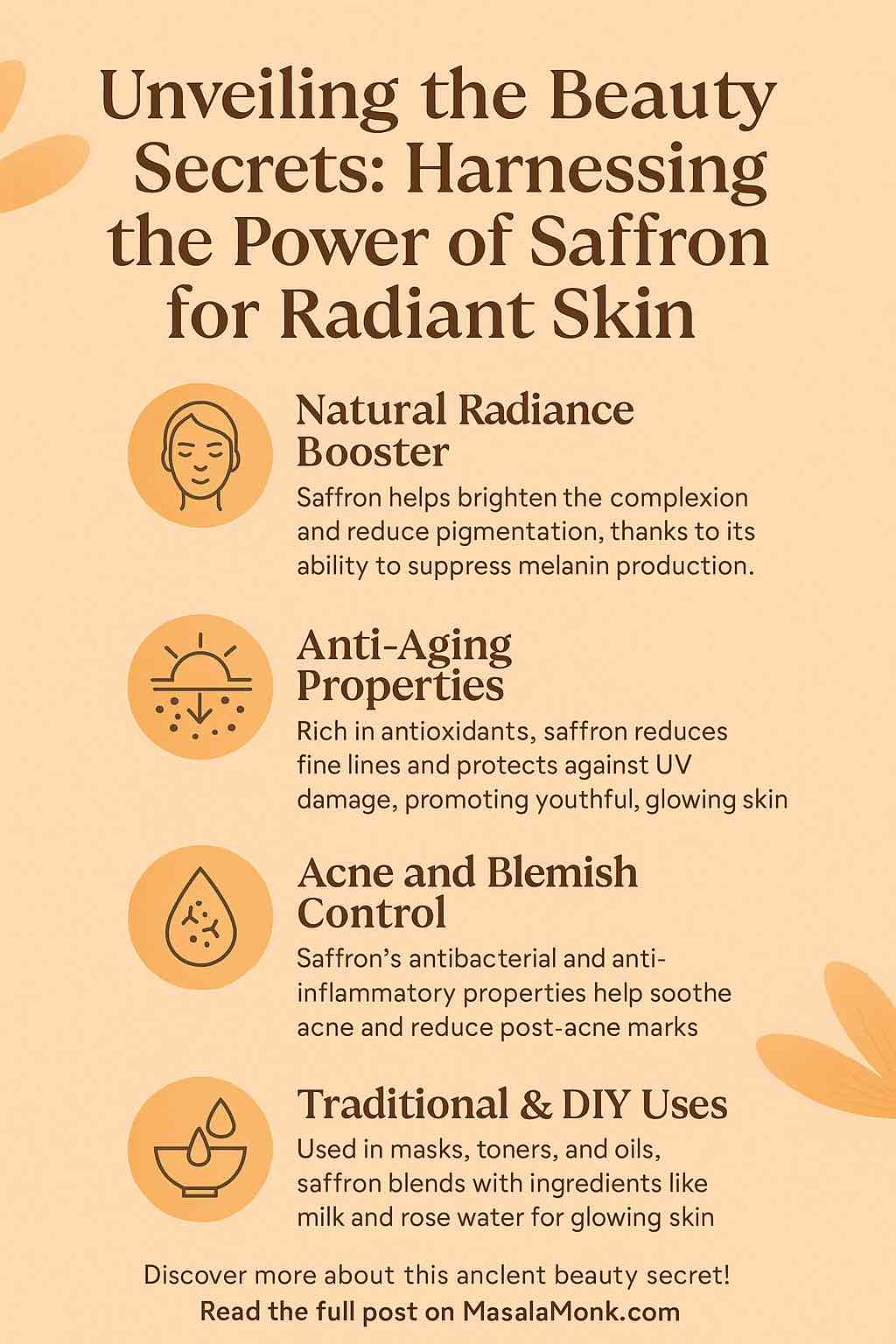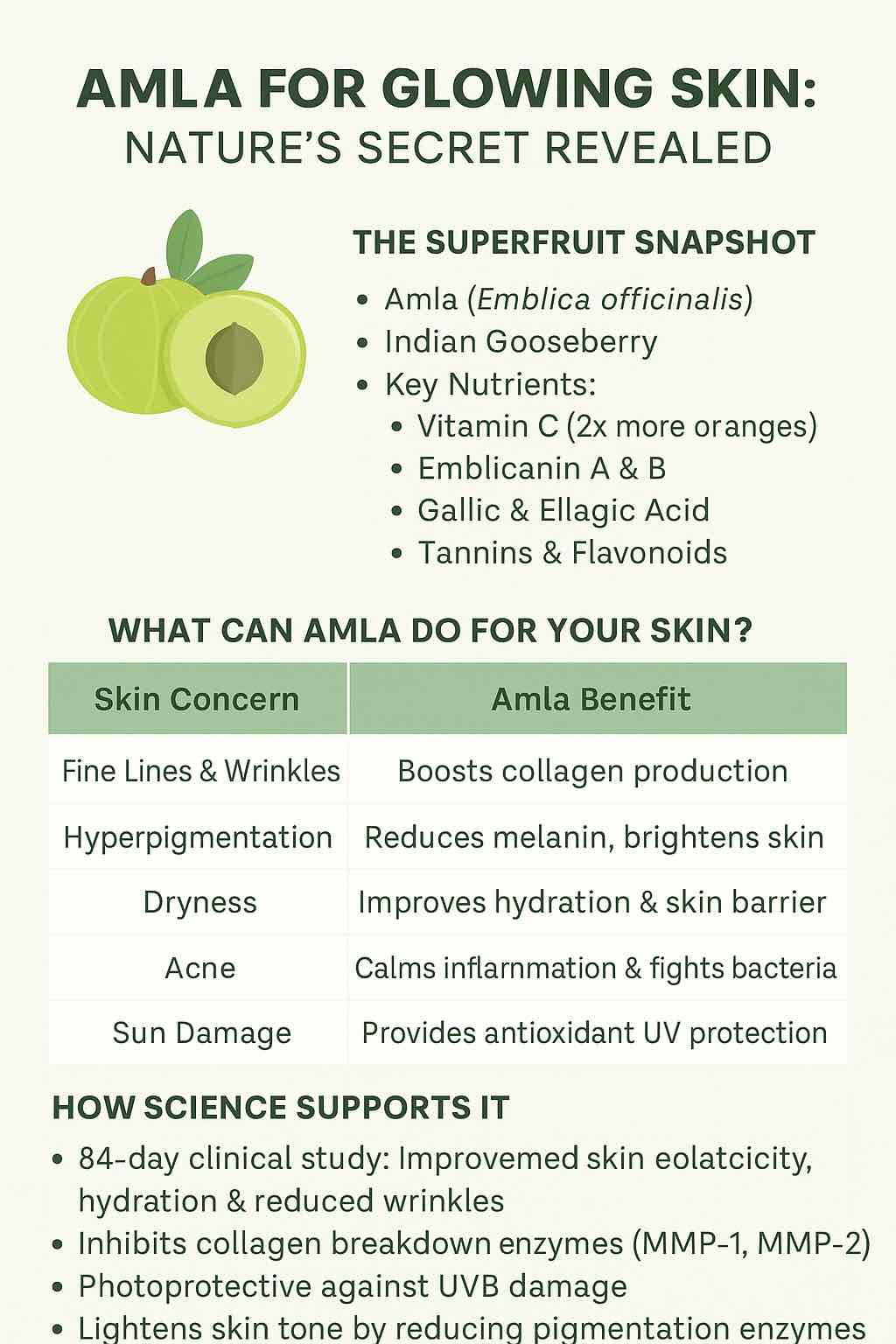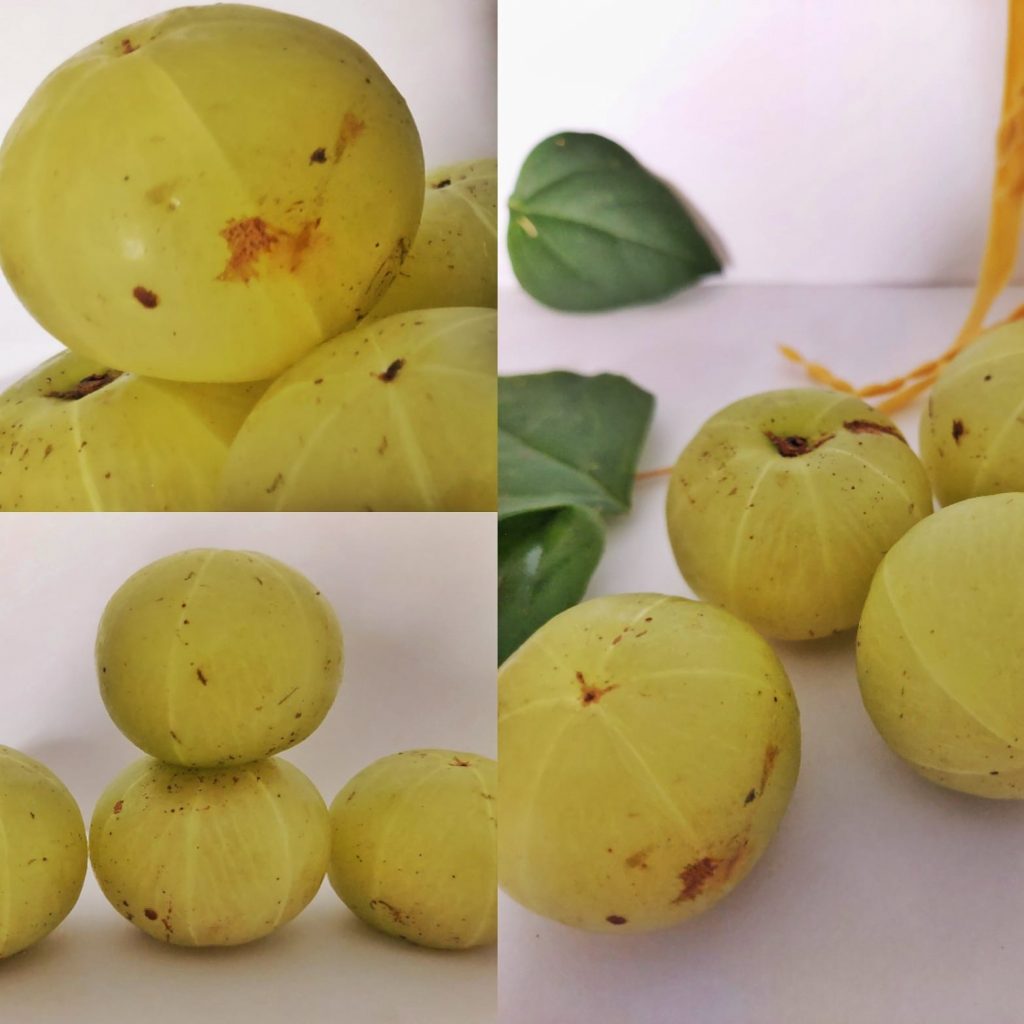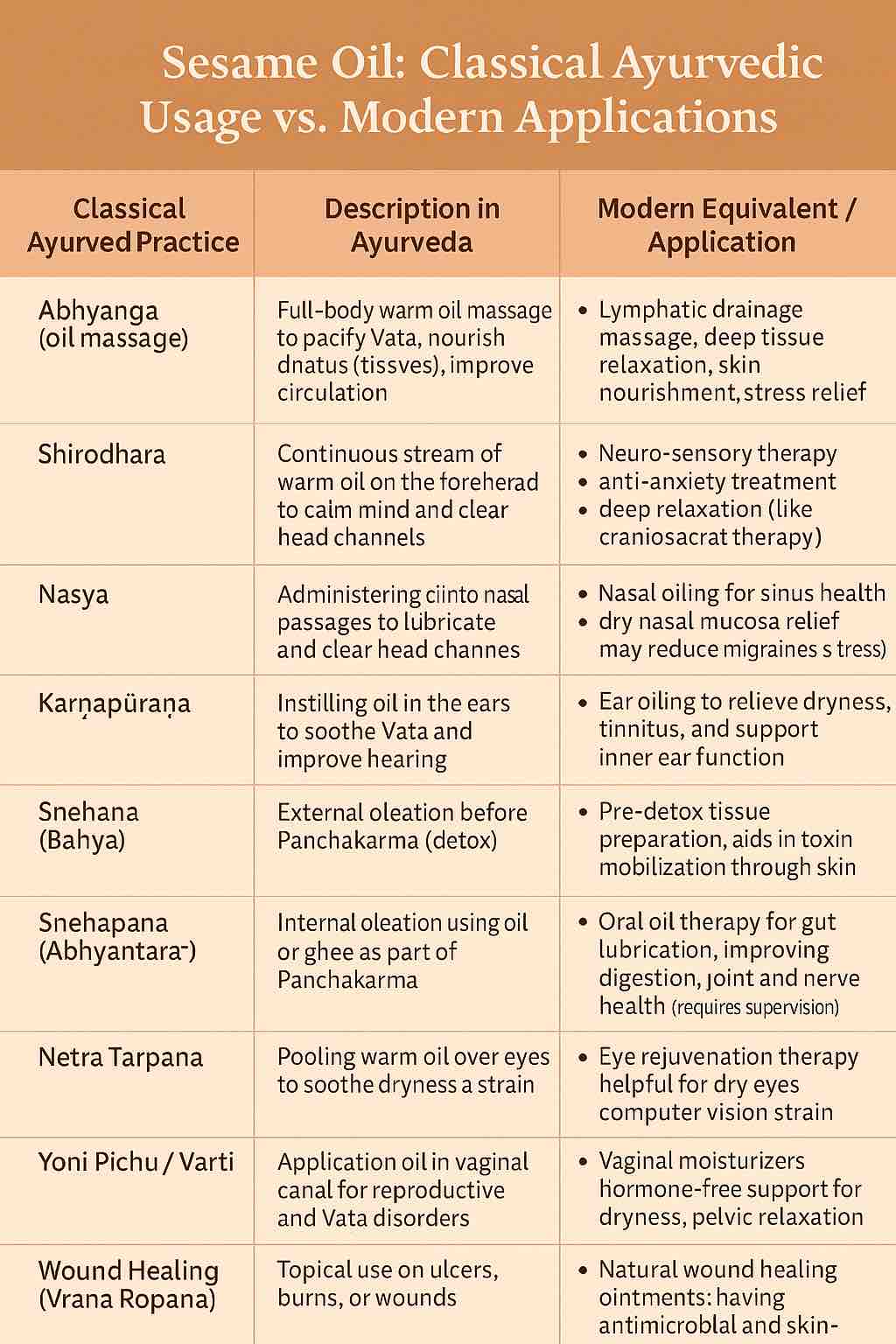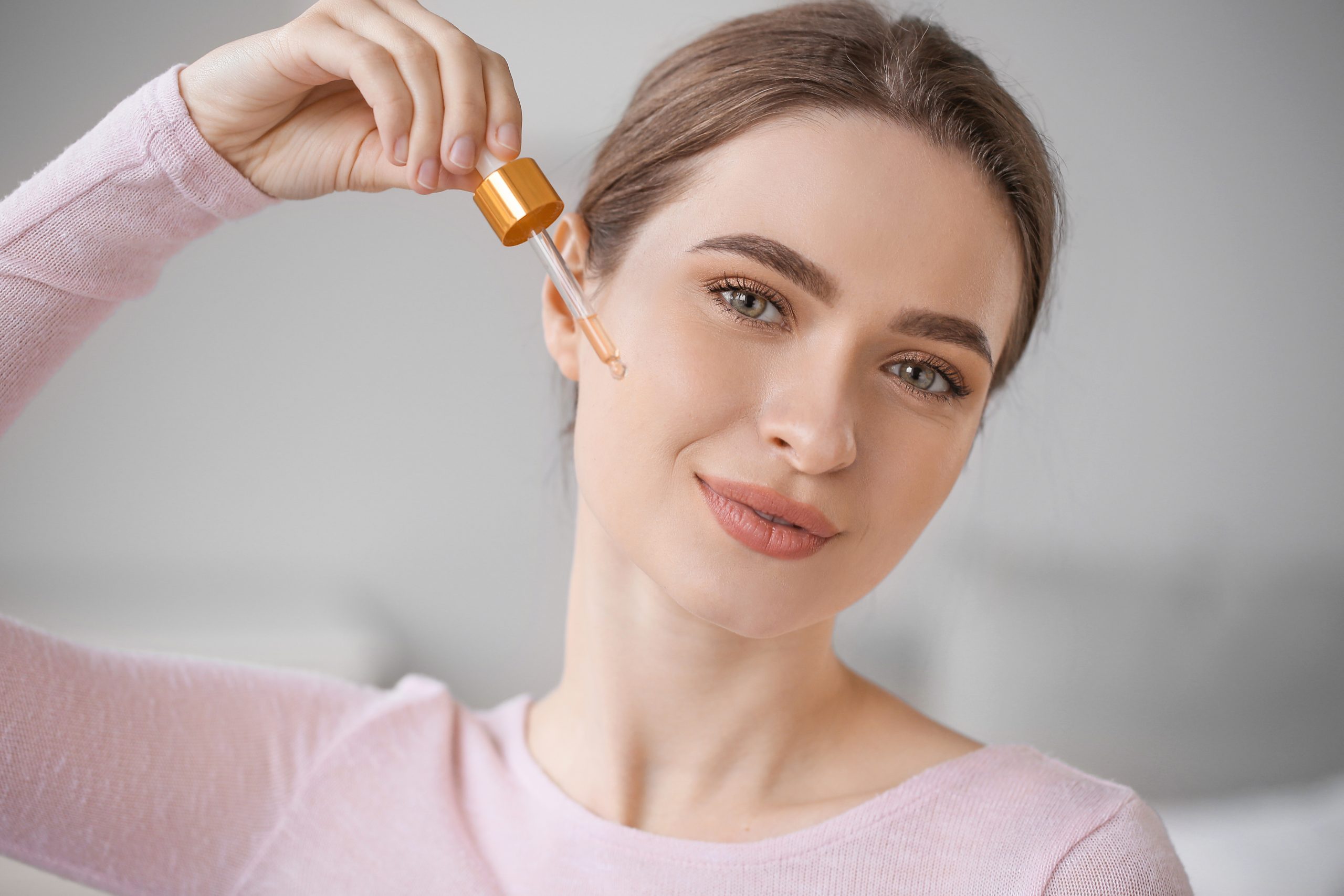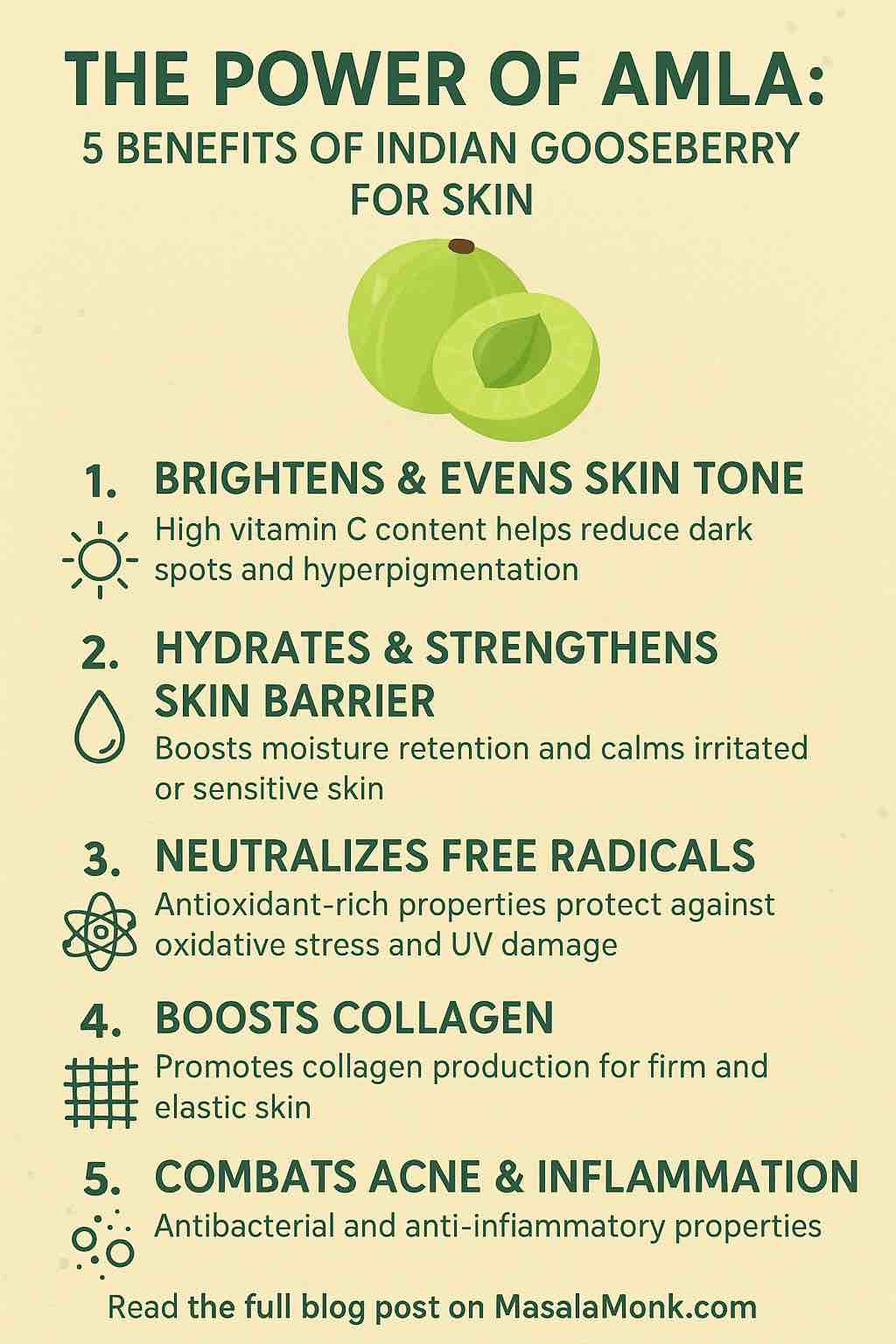
In a world brimming with synthetic skincare solutions, nature quietly holds some of the most powerful remedies—and Amla, or Indian Gooseberry, is one such treasure. Used for centuries in Ayurvedic medicine, amla has recently gained global recognition in dermatology and skincare circles. But this isn’t just about ancient wisdom. Cutting-edge 2024–2025 research is now backing what Ayurveda has long known: amla is a skincare powerhouse.
This guide breaks down the top 5 science-backed benefits of amla for your skin, how to use it (DIY and commercial options), and what to expect when incorporating it into your skincare ritual.
🌿 What is Amla?
Amla (Phyllanthus emblica) is a small, green, sour fruit known for its exceptionally high vitamin C content—up to 20 times more than oranges. Beyond vitamin C, amla is rich in polyphenols, flavonoids, tannins, and ellagic acid, making it one of the most potent antioxidant-rich foods on the planet.
🧴 1. Brightens & Evens Skin Tone Naturally
Hyperpigmentation, dark spots, and dullness are some of the most common skincare concerns—and amla attacks them at the root.
💡 How it works:
- Vitamin C inhibits tyrosinase, the enzyme that triggers melanin production.
- Polyphenols help suppress oxidative stress that worsens pigmentation.
- Recent studies (2024) show amla significantly inhibits the cAMP/CREB/MITF pathway, a key signal in melanogenesis (pigment formation).
✅ Practical Use:
- DIY Brightening Mask: Mix 1 tsp amla powder + 1 tsp yogurt + ½ tsp lemon juice. Apply for 10–12 minutes, 2–3×/week.
- Best paired with: Niacinamide or licorice root extract for a synergistic brightening effect.
💧 2. Deeply Hydrates & Strengthens Skin Barrier
Dry, flaky skin is often a sign of a compromised barrier. Amla’s bioactive compounds restore the skin’s natural defenses.
💡 How it works:
- Amla increases ceramide and hyaluronic acid production (as shown in a 2024 IB complex study).
- Restores skin’s stratum corneum, improving moisture retention.
✅ Practical Use:
- Night Moisture Mask: Mix amla juice with aloe vera gel and apply as an overnight mask.
- Commercial Tip: Look for serums with “stabilized amla extract” or combined with barley sprout for proven hydration support.
⚡ 3. Neutralizes Free Radicals & Prevents Premature Aging
Wrinkles and fine lines often start with oxidative damage. Amla’s antioxidant profile targets this effectively.
💡 How it works:
- Neutralizes free radicals triggered by UV, blue light, and pollution.
- Inhibits MMP-1 and MMP-3, enzymes that degrade collagen.
- Stimulates SIRT1 and FOXO1, genes associated with longevity and skin health.
✅ Practical Use:
- Drink 50 ml amla juice daily on an empty stomach.
- Use amla-infused antioxidant serums before sunscreen for photoprotection.
- Combine with green tea extract or resveratrol for maximal antioxidant synergy.
💪 4. Boosts Collagen Synthesis for Firmer Skin
As we age, collagen production slows, leading to sagging and wrinkles. Amla revs up your skin’s internal scaffolding.
💡 How it works:
- Provides high doses of ascorbic acid (vitamin C) essential for collagen crosslinking.
- Promotes collagen gene expression in fibroblasts (as shown in 2023 cellular studies).
✅ Practical Use:
- Add amla powder to smoothies with turmeric and black pepper.
- Use topical amla creams with peptides or retinol to enhance collagen remodeling.
🛡️ 5. Combats Acne & Inflammation
Amla’s anti-inflammatory and antimicrobial powers help calm breakouts and prevent future ones.
💡 How it works:
- Reduces NF-κB and COX-2 inflammatory pathways.
- Fights acne-causing bacteria like P. acnes.
- Calms redness and soothes reactive skin.
✅ Practical Use:
- Anti-Acne Spot Treatment: Dab diluted amla juice (1:2 with rose water) on pimples overnight.
- Use in conjunction with tea tree oil or salicylic acid for more severe acne-prone skin.
✨ Bonus: Amla for Sun Protection
Recent research shows that amla extract can reduce UVB-induced skin damage, supporting its use alongside sunscreen. While it’s not a substitute for SPF, amla offers:
- Reduced pigmentation
- Lower UV-induced inflammation
- Skin thickening and barrier support
🔬 Latest Research Highlights (2024–2025)
| Study | Key Finding |
|---|---|
| e-NRP Journal (2024) | IB complex (amla + barley sprout) improved skin hydration, reduced wrinkles, and blocked melanogenesis in UV-exposed mice |
| Nature.com (2023) | Amla activates SIRT1 and FOXO1, promotes collagen biosynthesis, and lightens pigmentation |
| Healthshots (2025) | Amla shown to reduce acne, hydrate skin, brighten complexion in consistent DIY use |
🧪 What to Look for in Products
- Standardized amla extract (not just raw juice)
- Look for “Emblica officinalis extract” high in ascorbic acid
- Products combining amla with barley sprout, hyaluronic acid, niacinamide, or retinol show synergistic effects
🧘♀️ Final Thoughts: From Ayurveda to Science, Amla Is the Real Deal
Amla isn’t just a trend—it’s a timeless ingredient backed by modern scientific validation. Whether you’re seeking brighter, firmer, or calmer skin, incorporating amla into your skincare and diet is a holistic step with powerful results.
🔄 Combine External + Internal Use:
- Topically: Amla serums, masks, and creams
- Internally: Amla juice, powder, or capsules
Just as importantly, consistency matters—visible improvements generally take 3–6 weeks of regular use.
Frequently Asked Questions (FAQs)
1. Can I use amla on my face every day?
Yes, but it depends on the form. Diluted amla juice or low-concentration serums can be used daily. For masks or powders, 2–3 times per week is ideal to avoid over-exfoliation or irritation, especially for sensitive skin.
2. Is amla suitable for all skin types?
Mostly yes. Amla is safe for oily, combination, and acne-prone skin due to its anti-inflammatory and astringent properties. Those with dry or sensitive skin should use it with hydrating agents like aloe vera or honey, and always do a patch test first.
3. How long does it take to see results from using amla?
Visible changes like brighter tone or reduced acne may appear within 2–3 weeks of consistent use. For collagen support and wrinkle reduction, expect 4–6 weeks or longer depending on your age and skin condition.
4. Can I mix amla with other natural ingredients in DIY skincare?
Absolutely. Amla pairs well with:
- Honey (hydration)
- Yogurt (lactic acid exfoliation)
- Turmeric (anti-inflammatory)
- Rose water (soothing)
- Avoid combining with strong acids or retinol in DIY unless guided by a dermatologist.
5. Is drinking amla juice as effective as applying it topically?
Both approaches complement each other. Oral intake helps with internal collagen production, detox, and antioxidant effects, while topical use targets specific skin concerns like pigmentation and acne directly.
6. Can amla help reduce wrinkles?
Yes. Amla’s vitamin C content boosts collagen, and recent studies show it inhibits enzymes (MMPs) that break down skin structure. It also stimulates anti-aging genes like SIRT1 and FOXO1.
7. Are there any side effects of using amla on the skin?
Generally safe, but possible reactions include:
- Mild stinging or dryness (especially with juice or lemon mixes)
- Allergic reaction in rare cases
Always dilute raw juice, avoid contact with eyes, and perform a patch test.
8. Can I use amla with my current skincare routine?
Yes, especially in the morning with sunscreen or at night with hydrating products. Be cautious when layering with:
- Vitamin C serums (to avoid over-acidifying)
- Exfoliating acids (AHA/BHA)
Spacing them out (AM/PM) works well.
9. Which is better: amla powder or fresh amla juice for skin?
- Fresh juice is potent and rich in active enzymes but may oxidize quickly.
- Powder (especially freeze-dried or organic) is stable, travel-friendly, and easier for consistent DIY use.
Choose based on convenience and shelf life.
10. Are there skincare products that already contain amla?
Yes. Look for:
- Serums with “Emblica officinalis extract”
- Masks and creams marketed as Ayurvedic or antioxidant-rich
Brands like Tracie Martyn, Blue Nectar, and some K-beauty lines now feature amla-based formulas.

